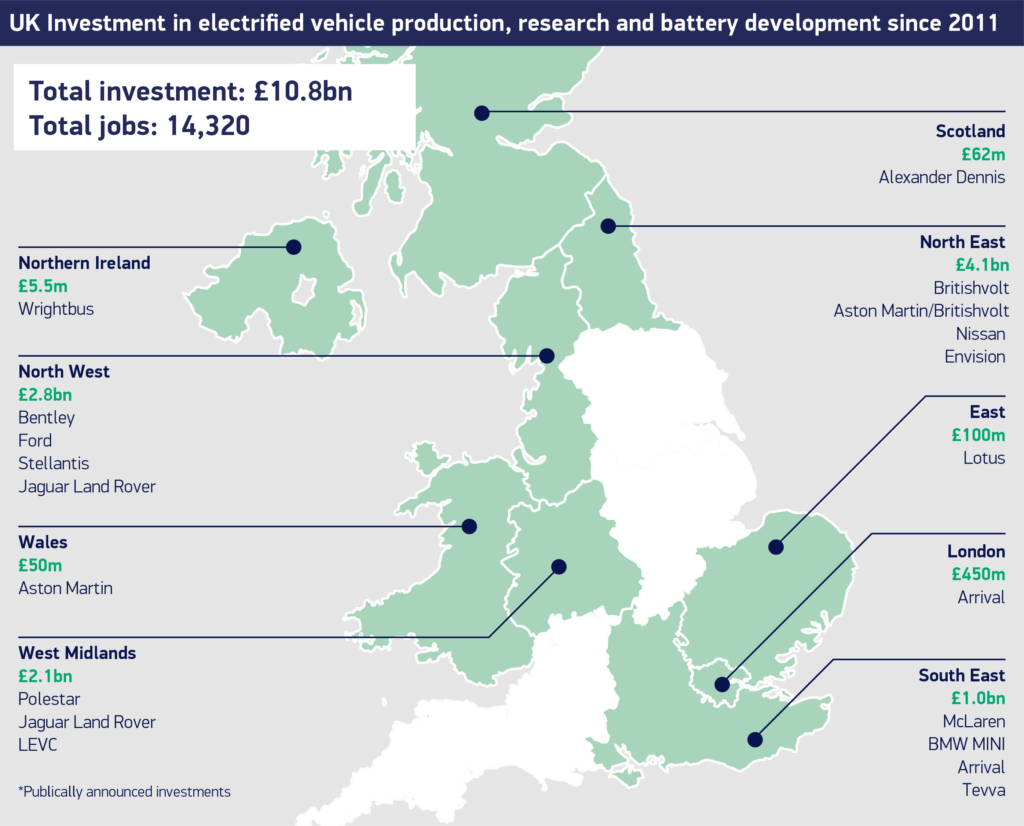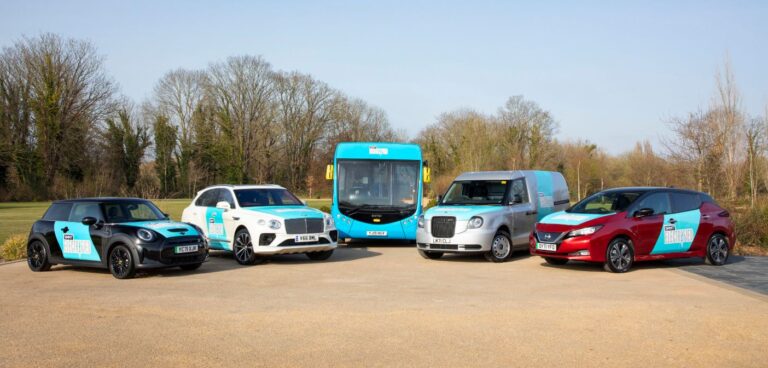New analysis by the Society of Motor Manufacturers and Traders (SMMT) has revealed some £10.8bn has been dedicated to UK EV production and gigafactories since 2011, with billions more invested globally to bring new technology to market.
SMMT added given that figure accounts purely for public announcements by vehicle and battery manufacturers, and does not include wider supply chain investment, the overall UK automotive commitment to electrification will be even higher.
Britain’s first ‘electric decade’ kicked off with a £420m investment in Sunderland for the UK’s first mass-produced battery electric car, since then more than 10 vehicle manufacturers have invested in communities across the country to create jobs and to design, engineer and build the cleanest, greenest vehicles for domestic and export markets. Alongside cars, the UK also produces electric vans, buses and trucks, as established manufacturers and new entrants have invested in production.
The UK EV market has followed suit by growing rapidly, SMMT said. Ten years ago, six models of electric car were available, accounting for just one in 1,000 new car registrations. There are now more than 140 models on the market, with electric vehicles comprising more than one in six new cars and one in 28 vans registered.

However, the SMMT did report that currently just one in 80 cars on the road runs on electricity, with the UK aiming for one in three by 2030 if net zero ambitions are to be met.
Mike Hawes, SMMT chief executive, said: “The UK automotive industry has set out its intent – to meet the challenge of net zero – and has backed that ambition with cash, investing massively during Britain’s first electric decade.
“As we enter the second, the stakes are higher, with some of the world’s toughest regulation coming, regulation that will seek to determine the pace of change in a market constantly buffeted by headwinds. But mandates on manufacturers alone will not drive the market.
“Delivering net zero needs a competitive industry and a competitive market. We need a holistic strategy with binding targets on chargepoint provision, attractive fiscal and purchase incentives, and a reliable, accessible and affordable user experience. We need a universal right to charge electric vehicles, for all drivers, wherever they live, wherever they travel and whatever their needs.”





